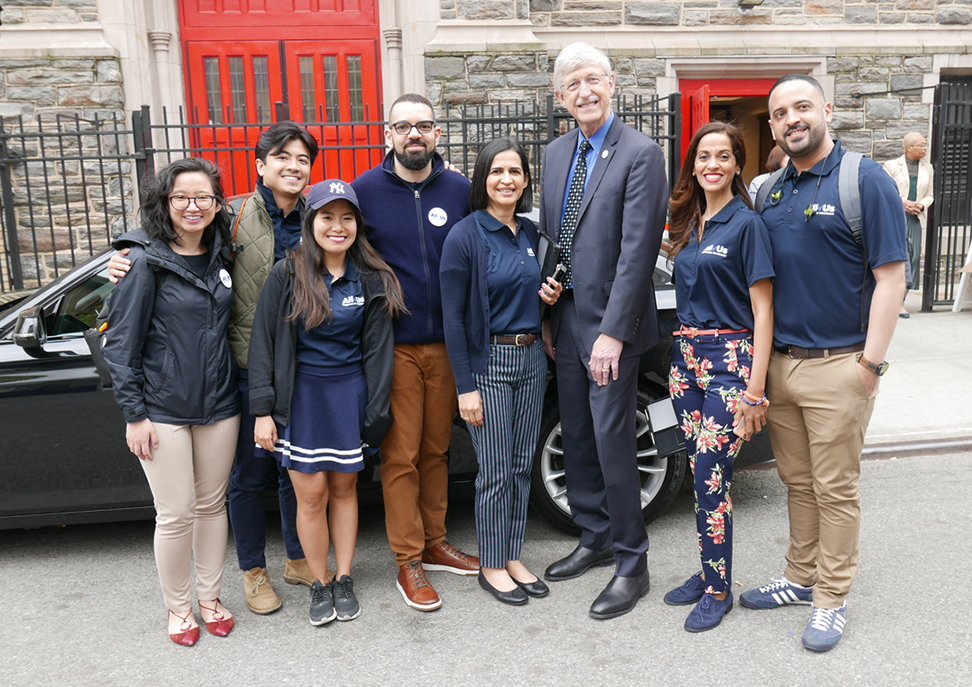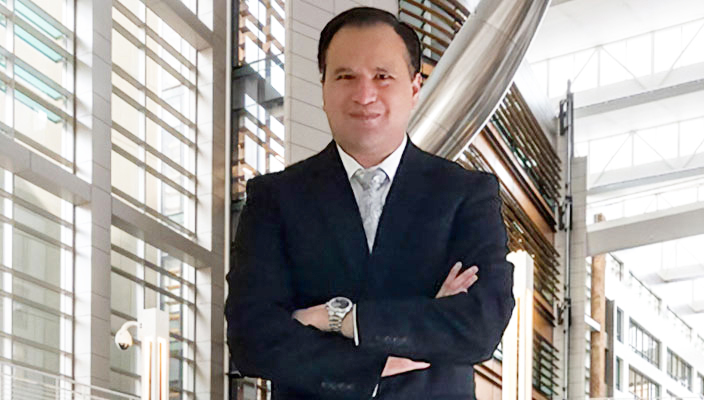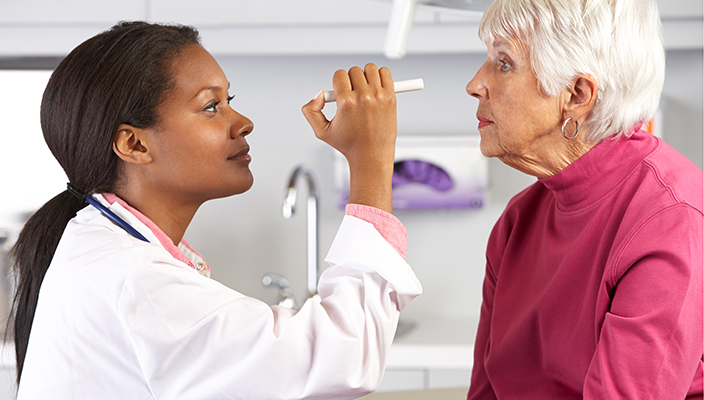*Image, from 2018, courtesy of the National Institutes of Health. Photo by Bob Gore.
Please join us in bidding a fond farewell to NIH’s leader of the last 12 years. In December, Francis S. Collins, M.D., Ph.D., stepped down as director of NIH. Dr. Collins was NIH’s longest-serving presidentially appointed director.
Dr. Collins had a vision of a research program that could tailor treatments to each of us. This idea is also known as precision medicine. His vision for precision medicine made the All of Us Research Program a reality.
“It is such a promising opportunity to transform the way we approach medical challenges,” Dr. Collins said of the program in the early days of All of Us. Medicine that takes into account your health behaviors, your lifestyle, and your genetics would have the best chance of working for you, he said.
Dr. Collins’s vision of the All of Us program grew out of his leadership in the Human Genome Project. The project was a 13-year effort to decode the human genome. Our genome contains the blueprint that makes us who we are. The blueprint is in the form of a long sequence of DNA letters. These letters form genes that encode all the tools and materials that make up our bodies. The Human Genome Project finished its first genome sequence in 2003.
Since then, technology that reads our DNA has improved a lot. What took 13 years then for the first complete genome takes a week to do with 5,000 All of Us participants. This speed is one reason All of Us can build a huge database of information about diverse genes. Connecting the diverse makeup of All of Us to health information will show us the influence of genes on health. And for a much broader population than ever studied before.
“On a national scale, he cast a vision for what we could do with big scientific programs, first with the Human Genome Project, and now with All of Us. These tools are accelerating medical discovery, improving healthcare. And I can’t imagine going through the last two years of COVID-19 without him,” said All of Us CEO Joshua Denny, M.D.
“On a personal level, his discoveries have impacted members of my own family. His mentorship has changed my career path. And his example of living out his faith as a scientist has been an inspiration to me. We are all better off because of him,” said Dr. Denny.
Dr. Collins became the NIH director in 2009. In addition to All of Us, he launched NIH efforts to speed up research into brain diseases, cancer, and opioid addiction. He also led research during the COVID-19 pandemic. He ensured the development of safe and effective vaccines. He directed NIH to put resources toward the hardest hit communities. He also supported research that looked into why some people don’t fully recover from COVID.
“It has been an incredible privilege to lead this great agency,” Dr. Collins said. “I am proud of all we’ve accomplished. I’m most grateful and proud of the NIH staff and the scientific community. The Human Genome Project gave us the text of our blueprint, but there’s so much we still don’t understand. All of Us is really going to change that, and will do it in a way that’s truly inclusive.”
Dr. Collins isn’t leaving the NIH entirely. He is still working at the National Human Genome Research Institute as a researcher. In his laboratory, he studies type 2 diabetes. As an All of Us participant, he is still part of our program. And maybe, with the many research questions he has, he will explore diabetes using the All of Us Research Hub.
The directorship of the NIH requires Senate approval. Until a new director is nominated by the President and confirmed, Lawrence A. Tabak, D.D.S., Ph.D. will serve as acting director. Dr. Tabak worked with Dr. Collins as NIH’s Principal Deputy Director for more than a decade and is deeply knowledgeable and supportive of All of Us.
Watch this farewell tribute for Dr. Collins with dozens of prominent figures from around the world. See researchers, government officials, musicians, actors, and the Dalai Lama honor him.









